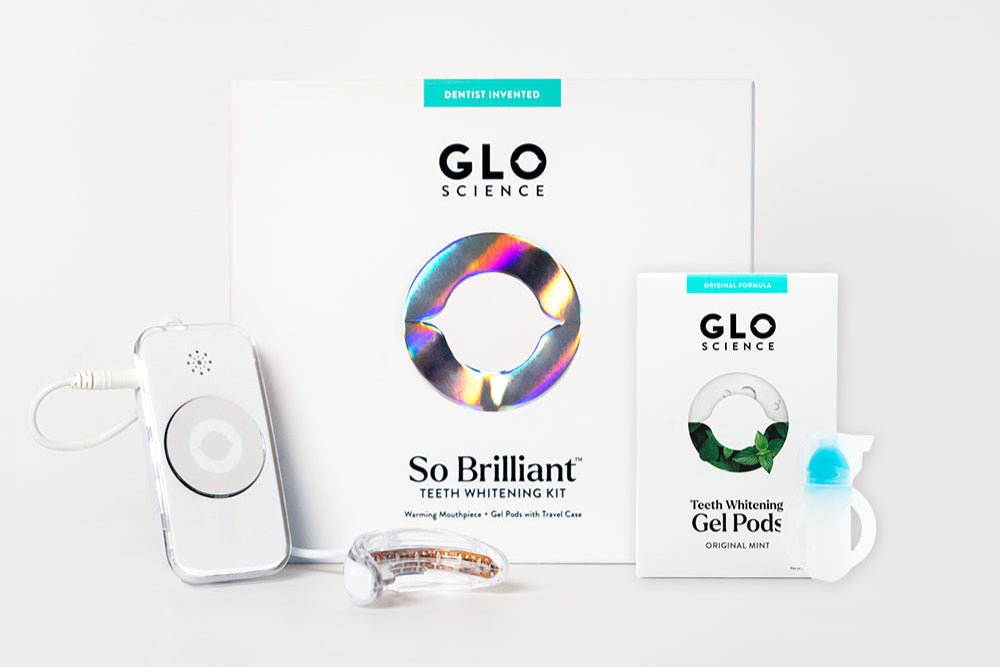
Overcoming Bad Oral Hygiene and Harmful Habits
Years ago, it was totally out of scope to relate Alzheimer's to bad oral hygiene. While dentists always advise brushing daily and urge regular hygiene visits, we might take it lightly. But the truth is, you need to maintain good oral hygiene for more reasons than you may think! Several studies have shown that poor oral health can lead to more serious conditions than cavities, stains, or bad breath.
Read on to explore the effects of poor oral hygiene on your health and how to break free from bad oral habits for a healthier and brighter smile.
What is Bad Oral Hygiene
Your mouth is the gateway for everything that goes into your digestive system, which contains millions of helpful bacteria that help break down and digest food. When we chew our food, tiny particles get stuck between the teeth, in the grooves, and even on the tongue.
These tiny food particles build up, creating toxins and attracting harmful bacteria. If neglected, these harmful bacteria cause tooth cavities and gum inflammation and will find their way into your body.
Effects of Neglecting Your Oral Health
Maintaining good oral hygiene is not only about having a beautiful smile; it’s essential for overall health and well-being. Bad oral hygiene can lead to a wide range of dental problems, from simple cavities and bad breath to tooth loss and, what’s more, severe health conditions and diseases.
Bad Oral Hygiene Effects on the Mouth
Bad Breath (Halitosis)
Bad breath is usually caused by lingering bacterial growth in the mouth caused by food particles collecting between teeth. Besides being embarrassing, it may sometimes indicate the presence of an underlying health condition.
Tooth Cavities
Bacterial growth in the mouth creates a film of plaque, which reacts with sugar intake from food and drinks, creating an acidic medium that dissolves the tooth enamel, causing decay.
Gum Diseases
Poor oral hygiene can accumulate plaque on the teeth and gum line. If left unmanaged, it hardens and forms tartar. The gums become reddish and swollen and easily bleed. In the long term, it will pull away from the teeth and form painful pockets.
Abscessed Teeth
Untreated tooth decay or pockets can lead to the formation of an abscess, a pocket of bacterial infection that gets swollen and becomes severely painful. If left untreated, it may spread to other spaces, causing more serious health conditions or tooth loss.
Tooth Loss
Whether it’s an abscessed tooth that needs to be removed or a tooth that is wiggling due to the effect of pulling away gums, neglecting brushing and regular check-up visits can cause tooth loss.
Poor Oral Hygiene Consequences on the Health
Heart Disease and Stroke
People with untreated gum diseases are more likely to suffer from heart disease and stroke than others due to the bacteria. The harmful bacteria in the mouth will find their way to the bloodstream through the gums, which can be responsible for clogging the blood vessels and causing a heart attack.
Risk of Dementia
Several studies have shown that dementia and Alzheimer’s disease can result from periodontal diseases. The bacteria from the mouth can send inflammatory substances through nerve channels to the brain, causing brain cell death and leading to memory loss.
Diabetes
Around 95% of diabetic Americans also suffer from periodontal diseases. Both diseases can be easily correlated. Diabetes increases the risk of infections, including gum infections, while periodontal diseases can cause increased and uncontrolled blood sugar levels.
Respiratory Problems
Bacteria in the plaque can travel through the blood and into the lungs. Once in the respiratory system can cause various problems, from bronchitis and pneumonia to chronic obstructive pulmonary disease (COPD).
Oral Cancer
If you smoke or use tobacco, you’re likely aware of the increased risk of oral and lung cancer. On the other hand, studies have shown a correlation between several periodontal diseases and oral cancer.
Bad Oral Habits that Harm Your Health
The experts at GLO Science identified some everyday bad oral hygiene habits, but it’s easy to improve.
1. Brushing Too Hard
Brushing your teeth at least twice a day is a great habit. But if you're too aggressive, this healthy habit can become detrimental. Brushing too hard can wear away at both tooth enamel and gum tissue.
2. Clenching or Grinding Teeth
This can occur throughout the night or while awake due to stress. Prolonged pressure on teeth by clenching can cause wear of the enamel and increase the risk of tooth chipping and decay.
3. Eating and Drinking All Day Long
Grazing, especially on sugary snacks and drinks, can be unhealthy for several reasons. First, your caloric intake will be more challenging. Also, allowing sugary foods and drinks to sit on your teeth fosters bacterial growth, which causes tooth decay and gum disease.
4. Ice Chewing
This might seem innocuous - after all, ice cubes are just water, right? They're ice crystals. Your tooth enamel is also a kind of crystal. And when you push two crystals together with enough force, one of them is going to break. Often, it's the ice, but it could be your tooth or a filling that gives way first. Besides, ice chewing can increase tooth sensitivity.
5. Using Teeth As Tools
We've all done it. We imagine our incisors are scissors and simply chomp down in a hurry to try on a new shirt or open a package. It seems easier than rummaging through a drawer for scissors, but it can be disastrous.
How to Fix Bad Oral Hygiene
So, what are good oral hygiene habits? We’ve gathered the top 9 healthy oral habits for you here, but here’s a quick glimpse.
- Brushing and flossing daily
- Regular hygiene visits
- Avoid consuming sugary foods and drinks
- Eat a balanced diet, including crunchy fruits and vegetables
- Quit smoking and tobacco products
- Treat other health conditions
- Use safe equipment for your oral health. Pick a soft toothbrush and check the ingredients of your teeth whitening products.
We're not saying you'll have a heart attack or get pneumonia if you skip brushing every so often. However, scientists have found that ditching bad oral hygiene habits can help you maintain a healthier and stronger body.







